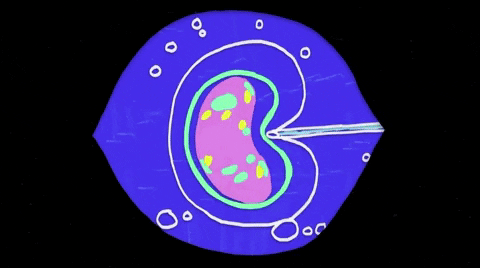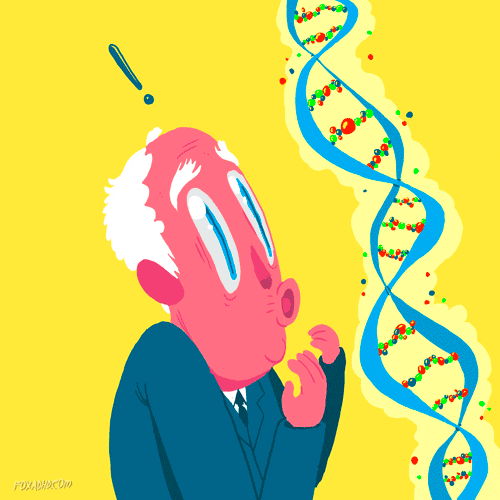
DNA testing is all the craze these days. Different laboratories and companies have their own approach to carry out the test and analysis. So, how does CircleDNA work? What is our theory behind and how we are implementing it?
Who could have imagined that sending a swab of your own saliva to a group of scientists would be one of the most exciting things you can do these days?
The demand for genetic discovery has exploded in recent years.
According to one study in 2019, around 26 million consumers have already submitted their data to a genetic testing company. Now, the excitement around this kind of testing is growing once again, as people become increasingly interested in their health and history.
In an age where we’re all a little more cautious about keeping ourselves safe and controlling what we expose our bodies to, DNA testing is a powerful tool.
With the right service, you can instantly discover which diet and nutrition changes could make you feel better or give you more energy. We can discover what sort of risks we’re most pre-disposed to and get advice on how to improve our sleep quality or overcome stress.
Now, stop just sitting there and thinking “how does CircleDNA work”. Let’s dive into the wonderful world of DNA testing and find out!

How Does CircleDNA work?
The kind of information you can get from a DNA test will depend on the service you choose. Some solutions are specially designed for family planning, offering insights into things like genetic counselling and predispositions. Other reports can tell you about your ancestry, and the kind of traits you’ve picked up through genetics. Besides that, it can flag any health issues you need to be aware of.
Your findings might predict the most likely hair colour of your future child, or whether you’ll love or hate cilantro. The secret sauce of all DNA testing strategies is simple: DNA sequencing.
By examining patterns in your DNA, scientists can tell you all kinds of valuable information.
The patterns in your DNA are made up of nucleotides – a series of 4 chemicals that make up your DNA. There are only four letters in each sequence:
- A: Adenine
- C: Cytosine
- T: Thymine
- G: Guanine
This seems like a pretty limited alphabet. Cytosine can only pair with guanine, and Thymine only pairs with Adenine.
However, the order those letters appear in through a long string of DNA translate into genetic instructions. They tell each cell of your body what molecules to create, and they’re pretty detailed patterns too. Each strand of DNA includes about 6 billion letters!
How does CircleDNA work on Translating DNA Sequences?
So, how can scientists look at such a vast selection of letters and tell you where your grandmother was born?
DNA testing professionals know how to read the sequencing of your genetic code – just like a computer programmer can read JavaScript.
Portions of each strand of DNA in your body split into sequences, and scientists use algorithms to decode the letters in each strand. Once your DNA testing company has a copy of the “instructions” that make you, you, it can compare your sequence to existing genetic information.
Eventually, the scientists that conduct your test will be able to tell you what the position of every individual letter in your sequence means. A letter switch in your code could be why you have blue eyes instead of green. Another tweak to your pattern could mean you’re at lower risk for a specific disease.
What Can it Reveal?
DNA testing companies can learn all sorts of information about you and your family through a simple test. You should decide what you want the scientists to decode on your behalf. A premium DNA test that looks at the whole shebang could give you hundreds of reports that provide information about:
- Diet and nutrition sensitivities
- Sports and fitness
- Health and disease risk
- Mental and brain health
- Family planning
- Drug response
- Sleep and stress
- Skin
- Traits and talents
- Wellbeing
- Ancestry

In comprehensive DNA tests, scientists look at the full 6 billion or so nucleotides in a genome (your complete set of genes). The team will attempt to read every T, G, C, and A in your pattern. And later, compile the results into comprehensive reports.
Though experts may possibly miss small amounts of information when exposed to that much data at once, some DNA companies are beginning to offer lifetime subscriptions to solve this problem. This means that you can get regular updates on important genetic information, and you can ensure the accuracy of your insights.
Have a specific question? Aside from comprehensive DNA testing kits, you can also find kits that focus on specific proteins in your DNA that deliver specific information about who you are.
Exome sequencing looks at the part of the genome that hosts protein-coding genes, leading to a slightly less comprehensive insight into your makeup. There are even tests that look at “SNPs”, or Single Nucleotide Polymorphisms, to look for specific traits in a person.
Why is DNA Testing so Popular?
The science behind DNA testing isn’t exactly new.
Professionals in the medical landscape have been exploring DNA for decades to help with testing for certain diseases and medical conditions. However, as the world grows increasingly more health-conscious, we’re all becoming more interested in what DNA can tell us about ourselves.
Getting a DNA test is like applying for an opportunity to read the book your genetics have written about you. DNA providers can help you understand yourself on a deeper level to make more informed decisions in your life.
For instance, your DNA test results might help you understand which foods you should avoid or which kinds of tests you should be asking your doctor for.
Some premium DNA testing companies even offer additional services.
After completing your DNA test, your sequencing company can give you guidance on how to improve your health, or follow up with new reports in the future, so you can see whether certain risks are increasing or decreasing.
All you need to do is figure out what kind of DNA test is right for you.
DNA Testing: Can You Trust it?

After “how does CircleDNA work”, the next question would be “should I trust it (or other DNA test)?”.
Despite the growing popularity of DNA testing, not everyone trusts this technology.
There are still a lot of people out there who believe DNA testing is a scam. Some less reliable companies have even faced legal action over the years for promising more than they could offer.
In 2010, the US Government Accountability Office released reports from an investigation that found various DNA testing companies to be guilty of misleading the public. At the time, some brands were taking advantage of DNA testing to tell customers scary stories about their health and make money in the process. Today, things are a bit different.
In the early days of DNA testing, many brands made sweeping claims about the genes responsible for certain health issues like diabetes or heart disease. These companies failed to recognise the reality that DNA testing is just one part of the story.
Your DNA results can tell you some interesting things about your genetics and ancestry, but they can’t prove that you’re going to end up with a certain disease or have a baby with blue eyes.
DNA testing is a solution that helps people to better understand their health and the role that DNA sequences can play in our lives. However, it is only one part of a larger picture. The best DNA testing companies are the ones that can evaluate your DNA markers and give you helpful guidance based on what they find.
For instance, your DNA testing company might be able to suggest that you could improve your health by reducing your dairy intake, or eating less gluten, based on the information they find.
Here are some quick insights into some facts and fictions about DNA testing:
| Fiction | Fact |
| Show you which foods will cause you to lose or gain weight. | Nutrigenetics tests can tell you how your body tolerates certain micronutrients, and which deficiencies might impact overall wellness. |
| Find long-lost family. | DNA testing can give you valuable information about your ancestors and the genetics that have contributed to who you are. |
| Shows if you’ll get cancer or other chronic diseases. | Explore certain markers that might indicate a greater risk of diseases like diabetes, heart disease, and depression, so you can be more mindful of potential symptoms. |
Furthermore, DNA testing helps to explain important facts about you and can guide you towards living a healthier lifestyle. But it’s not magic.
There are scam artists in any industry.
Protecting yourself means finding a DNA company you can trust
“How does CircleDNA work” solved. Now, should you take the test?
Got your answer for “how does CircleDNA work?”? Time to consider seriously whether or not you should take this important test. DNA testing can offer a fantastic insight into who you are.

The technology offers a chance to get a better idea of where your ancestors came from and which genetic factors might impact your health and wellbeing. However, like most things, this service works best when you know how to leverage it properly.
First, make sure you know what you can really learn from DNA testing. This technology adds extra colour and context to the information you know about yourself. However, it can’t answer every question.
Any DNA testing company that promises to tell you definitively whether you’re going to end up with diabetes one day is selling false information. The good news is that most DNA companies are no longer making the same sweeping statements that they did ten years ago. People are starting to see a more realistic picture of what is possible with scientific sequencing.
However, it is still important to make sure you’re working with the right company from day one. The right DNA testing strategy will help you make more informed decisions in your life about things like booking doctor appointments for certain tests and controlling your diet. But you do need the right support and guidance to leverage those benefits.
DNA testing can be an incredible experience; just make sure you approach it wisely with trustworthy labs. The answer to “how does CircleDNA work” is, in fact, too complicated to explain here, as we have invested years in this test kit. But you can always get a comprehensive understanding from our website.

References:
- Antonio Regaldo. “More than 26 million people have taken an at-home ancestry test.” MIT Technology Review, 11 February 2019, https://www.technologyreview.com/2019/02/11/103446/more-than-26-million-people-have-taken-an-at-home-ancestry-test/. Accessed 20 April 2021.
- Branicki et al. Model-based prediction of human hair color using DNA variants. Hum Genet. 2011 Apr;129(4):443-54.https://pubmed.ncbi.nlm.nih.gov/21197618/. Accessed 20 April 2021.
- “GAO-10-847T Direct-To-Consumer Genetic Tests: Misleading Test Results Are Further Complicated by Deceptive Marketing and Other Q.” Government Accountability Office, 22 July 2010, https://www.gao.gov/assets/gao-10-847t.pdf. Accessed 20 April 2021.
- Hall, Wayne D et al. “The prediction of disease risk in genomic medicine.” EMBO reports vol. 5 Spec No,Suppl 1 (2004): S22-6. doi:10.1038/sj.embor.7400224. Accessed 20 April 2021.
- Hughes, Mike. “Evolving eating habits as a result of COVID-19.” New Food magazine, 5 May 2020, https://www.newfoodmagazine.com/article/109890/evolving-eating-habits-as-a-result-of-covid-19/. Accessed 20 April 2021.
- Kang HJ, Kim KT, Park Y, Yoo KH, Kim JW, Lee JY, Kim SW, Shin IS, Kim JH, Kim JM. Genetic markers for depressive disorders with earlier age at onset. Progress in Neuro-Psychopharmacology and Biological Psychiatry. 2021 Jun 8;108:110176. Accessed 20 April 2021.
- Krimsky S. Understanding DNA Ancestry. CAMBRIDGE University Press; 2021 Nov 4.https://books.google.com.hk/books?hl=en&lr=&id=ehVEEAAAQBAJ&oi=fnd&pg=PR15&dq=ancestry+dna+testing&ots=ddzxYMNveP&sig=XMS9qfhz-WW-CAknPOd2eEjgrzQ&redir_esc=y#v=onepage&q=ancestry%20dna%20testing&f=false. Accessed 20 April 2021.
- Läll et al. Personalized risk prediction for type 2 diabetes: the potential of genetic risk scores. Genet Med. 2017 Mar;19(3):322-329. Accessed 20 April 2021.
- “MLA CE Course Manual: Molecular Biology Information Resources (Genetics Review: Nucleotide).” NCBI, https://www.ncbi.nlm.nih.gov/Class/MLACourse/Original8Hour/Genetics/nucleotide.html. Accessed 20 April 2021.
- Morales et al. Food4Me Study. Effect of personalized nutrition on health-related behaviour change: evidence from the Food4Me European randomized controlled trial. Int J Epidemiol. 2017 Apr 1;46(2):578-588. https://pubmed.ncbi.nlm.nih.gov/27524815/. Accessed 20 April 2021.
- MedlinePlus: What is genetic ancestry testing https://medlineplus.gov/genetics/understanding/dtcgenetictesting/ancestrytesting/. Accessed 20 April 2021.
- Mullins VA, Bresette W, Johnstone L, Hallmark B, Chilton FH. Genomics in personalized nutrition: Can you “eat for your genes”?. Nutrients. 2020 Oct;12(10):3118.https://www.mdpi.com/2072-6643/12/10/3118. Accessed 20 April 2021.
- Sugrue, Leo P., et al. “How Well Can a Genetic Test Predict Your Future Health?” Scientific American Blogs, 4 April 2019, https://blogs.scientificamerican.com/observations/how-well-can-a-genetic-test-predict-your-future-health/. Accessed 20 April 2021.





